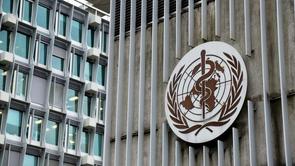 This photo taken on Jan 30, 2020, shows the headquarters of the World Health Organization in Geneva, Switzerland. (CHEN JUNXIA / XINHUA)
This photo taken on Jan 30, 2020, shows the headquarters of the World Health Organization in Geneva, Switzerland. (CHEN JUNXIA / XINHUA)
GENEVA - The World Health Organization (WHO) promised an investigation on Friday into “horrific” allegations of sexual abuse by aid workers combating an Ebola outbreak in Democratic Republic of Congo.
“To be very clear, we are outraged to read these reports,” WHO Director General Tedros Adhanom Ghebreyesus told a virtual news briefing in Geneva, promising punishment for perpetrators.
I have initiated an investigation of the specific allegations, as well as broader protection issues in health emergency response settings. WHO has a zero tolerance policy with regard to sexual exploitation and abuse.
Tedros Adhanom Ghebreyesus, WHO Director General
“We will not tolerate behavior like this from our staff, contractors or partners.”
READ MORE: UN received 138 allegations of sexual misconduct in 2017
The Thomson Reuters Foundation reported on Tuesday that more than 50 women had accused aid workers from the WHO and leading charities of sexual exploitation and abuse.
Anyone found involved would face serious consequences including immediate dismissal, Tedros added.
“I have initiated an investigation of the specific allegations, as well as broader protection issues in health emergency response settings. WHO has a zero tolerance policy with regard to sexual exploitation and abuse.”
An investigation by the Thomson Reuters Foundation and the New Humanitarian cited interviews with 51 women - many of whose accounts were backed up by aid agency drivers and local charity workers - in which they recounted multiple incidents of abuse. Most were carried out by men who said they were international workers, during the 2018-2020 Ebola crisis, the women said.
ALSO READ: Documents: UN staffer who complained of sexual assault appeals dismissal
“These allegations are horrific... Both the director general and myself have spent significant time in the field. I feel terrible to hear these stories,” added Mike Ryan, the WHO’s top emergency expert.
In June, Congo’s government announced the end of the two-year outbreak that killed more than 2,200 people - the second-largest Ebola outbreak since the virus was identified in 1976 - just as a genetically distinct version flared up elsewhere in the country.
That outbreak has infected 124 people and killed 50.


